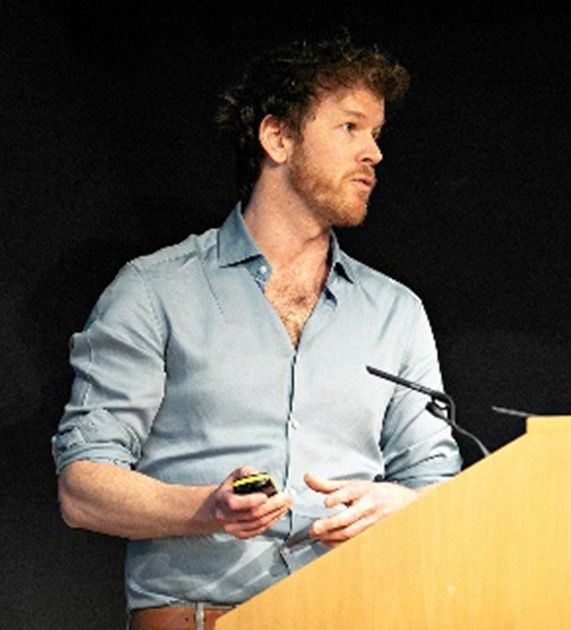CDS Seminar Series : Professor Duncan Astle | Development, diversity and data science: a transdiagnostic approach to understanding neurodevelopment
- Location
- Gisbert Kapp Lecture Theatre, In person event, Room N225, Zoom - registration required
- Dates
- Tuesday 18 April 2023 (13:00-14:00)
 Professor Duncan Astle
Professor Duncan Astle
This seminar is free to attend and is open to all, both within and outside the University. If you wish to attend in person or via Zoom, please register your interest to attend via the Zoom portal using the link above. Zoom details will be shared prior to the event via email.
We are delighted to announce that the Centre for Developmental Science will welcome Professor Duncan Astle, Gnodde Goldman Sachs Professor of Neuroinformatics, Department of Psychiatry and MRC Cognition and Brain Sciences Unit at University of Cambridge, to present a hybrid CDS Seminar, taking place on Tuesday 18th of April, 13:00-14:00.
You are welcome to attend either in person at Gisbert Kapp Lecture Theatre, Room N225, or online via Zoom. If you wish to attend, please register your interest to attend either in person or online via the Zoom portal using the link above.
Prof Astle's Twitter handle is @duncanastle and he can be contacted on Duncan.astle@mrc-cbu.cam.ac.uk
There will be the opportunity for an informal discussion after the seminar itself.
To arrange a 1:1 meeting with the speaker, please email Caroline Richards (Psychology) c.r.richards@bham.ac.uk
CDS Event Host - Dr Caroline Richards
Development, diversity and data science: a transdiagnostic approach to understanding neurodevelopment
Abstract
Macroscopic brain organisation emerges early in life, even prenatally, and continues to change through adolescence and into early adulthood. The emergence and continual refinement of large-scale brain networks, connecting neuronal populations across anatomical distance, allows for increasing functional integration and specialisation. But this gradual process of network emergence is incredibly variable across individuals, and it is not clear why the diversity exists, what consequences it holds for cognition, or what factors might shape it over time.
This talk will showcase the application of different AI-inspired computational models to address three crucial challenges that developmental scientists face. Firstly, how do we capture the incredible heterogeneity that exists across childhood and adolescents, and do these differences map to established diagnostic categories? Secondly, can we build developmental models that formalise simple biological principles in order to capture complex developmental phenomena? Thirdly, can we use these models to bridge scales and species to establish fundamental and causal mechanisms that shape development?
The take home message? Whilst certain modelling techniques might appear new, in reality they offer us a formal way of addressing some of the most long-standing questions at the heart of developmental science.
Speaker Biography
Duncan is the Gnodde Goldman Sachs Professor of Neuroinformatics at the Department of Psychiatry, a Programme Leader at the Medical Research Council’s Cognition and Brain Sciences Unit, and a Fellow of Robinson College. He heads the ‘4D Lab’ (https://www.astlelab.com/). They use a series of analytical tools – sometimes called neuroinformatics – to address crucial clinical and fundamental questions about childhood development and its disorders. Their work has been supported by the Royal Society, the British Academy, the Medical Research Council, the Economic and Social Research Council and various charitable foundations. In recent years Duncan won the Early Career Prize by the British Association of Cognition Neuroscience (2017), the Salvesen Prize (2020), the Vice-Chancellor’s Engagement and Impact Award (2020), and a National Celebrating Neurodiversity Award (2022).
This seminar is free to attend and is open to all, both within and outside the University. If you wish to attend in person or via Zoom, please register your interest to attend via the Zoom portal using the link above. Zoom details will be shared prior to the event via email.